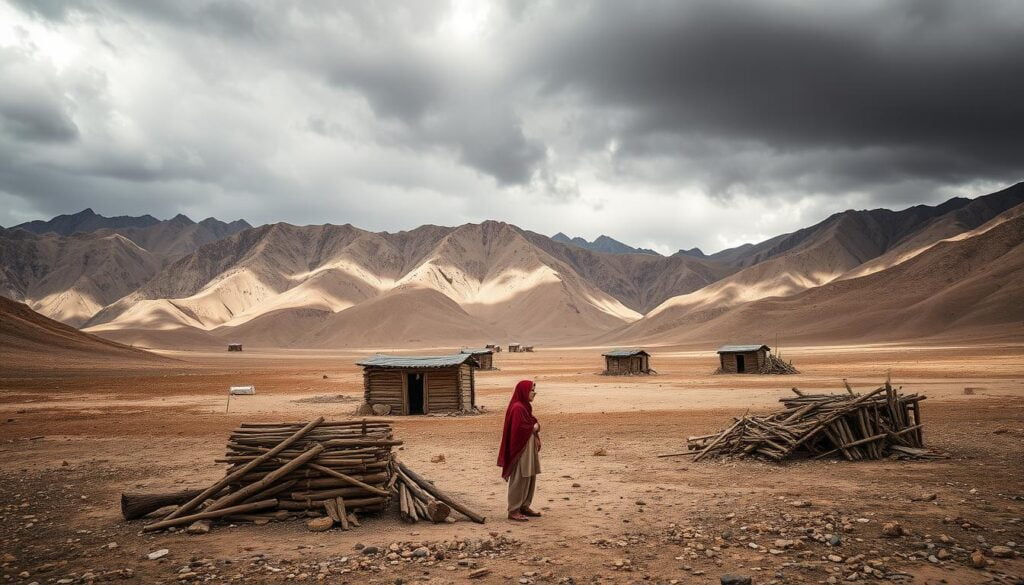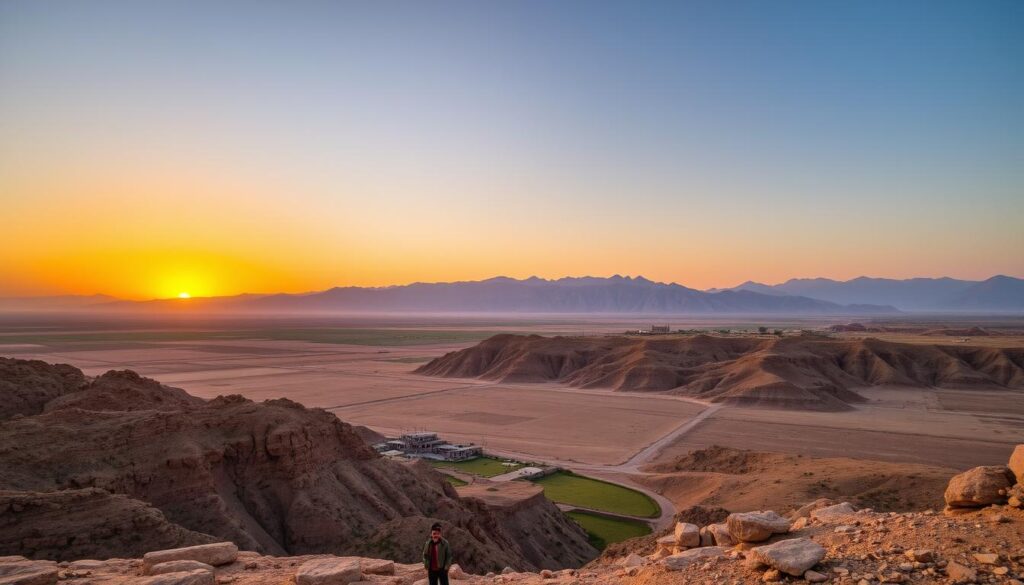Akhtar Mengal, the leader of the Balochistan National Party, has shocked Pakistan’s politics by resigning from the National Assembly. This move shows the deep troubles in Balochistan. The province faces big political, economic, and security issues.
For decades, Balochistan has been in the middle of political tension. People feel left out and want more freedom. Mengal’s resignation is a strong message. It shows the big need for solutions to these problems.

Key Takeaways
- Akhtar Mengal, the leader of the Balochistan National Party, has resigned from his seat in the National Assembly.
- Mengal’s decision highlights the ongoing political and security challenges facing the province of Balochistan.
- Balochistan has long grappled with issues of marginalization, lack of autonomy, and social unrest.
- Mengal’s resignation is a powerful statement, underscoring the deep-rooted grievances in the province.
- The move raises questions about the future political dynamics and the potential impact on national-level politics.
Akhtar Mengal Resigns from National Assembly Citing ‘Prevailing Situation’
Akhtar Mengal, a key figure in Balochistan, has unexpectedly quit the National Assembly. He did this because of the “prevailing situation” in the province. Mengal has always spoken up for the Baloch people’s rights.
Balochistan is Pakistan’s biggest and richest province but has faced political unrest and complaints. Mengal’s resignation shows the deep frustration in the area. It also points out the need for a big solution to the Baloch people’s problems.
“The prevailing situation in Balochistan has left me with no choice but to resign from the National Assembly,” stated Akhtar Mengal, as he addressed the nation.
Mengal’s resignation is very important, given the ongoing Balochistan crisis. The province has seen conflict, economic neglect, and human rights issues. These problems have made the Baloch people more upset.

Akhtar Mengal’s choice to leave the National Assembly is a big deal. It shows how big the political and social issues in Balochistan are. This could greatly affect national politics and efforts to help the Baloch people.
Balochistan’s Longstanding Grievances Fuel Political Tension
Balochistan is Pakistan’s biggest but least crowded province. It has faced many political and economic problems for a long time. These issues have led to political tension in the area. This tension affects national politics and how different groups work together.
Historical Context of Balochistan’s Struggle
The struggle of Balochistan for more power and self-rule started when it joined Pakistan in 1947. The central government has often ignored the region’s growth and its unique culture and identity. This has made the Baloch people very upset.
Demands for Greater Autonomy and Resource Control
The Baloch want more autonomy and control over their resources. They want a bigger role in managing and sharing the region’s gas, oil, and minerals. They feel the government doesn’t share resources fairly, which has led to the Balochistan grievances and ongoing tensions.
“The Baloch people have been fighting for their fundamental rights and the fair distribution of resources for decades. This is a longstanding issue that needs to be addressed through meaningful dialogue and political reforms.”
The political tension in Balochistan affects not just the province but also Pakistan’s national politics. It also impacts the balance of power among political parties and coalitions.
Implications for National Politics and Coalition Dynamics
Akhtar Mengal’s resignation from the National Assembly could change national politics and the coalition’s stability. The Balochistan crisis is a complex issue that could affect the whole political scene.
Mengal was a key figure in the region. His leaving the National Assembly might change the coalition’s balance. It could bring new problems and need creative ways to keep the government together. The Balochistan crisis has been a big issue for a long time. Mengal’s decision shows how serious the region’s problems are and the need for a full solution.
This event affects more than just politics. The Balochistan crisis has big implications for the country’s unity and the balance of power between the government and provinces. Handling this situation will need careful handling and a commitment to talking and finding common ground from everyone involved.
